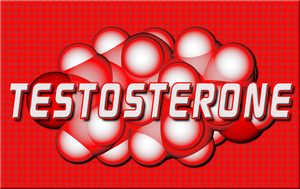Introduction
Being born small for gestational age (SGA) can pose significant challenges for infants, particularly in terms of achieving normal growth patterns. Nutropin, a recombinant human growth hormone, has emerged as a pivotal treatment in addressing these growth deficiencies. This article delves into the efficacy of Nutropin in improving long-term growth outcomes for SGA infants, offering hope and guidance for American families navigating this condition.
Understanding Small for Gestational Age
Infants classified as SGA are those whose birth weight falls below the 10th percentile for their gestational age. This condition can lead to various health issues, including growth retardation and developmental delays. The long-term impact of being SGA can be profound, affecting not only physical growth but also cognitive and emotional development.
The Role of Nutropin in Growth Enhancement
Nutropin, a synthetic form of human growth hormone, has been approved by the FDA for use in children who are SGA and fail to catch up in growth by age 2. Administered via daily injections, Nutropin works by stimulating the growth of long bones in the body, thereby increasing height velocity. Studies have shown that Nutropin can significantly improve height outcomes in SGA children, bringing them closer to their genetic potential.
Clinical Evidence Supporting Nutropin Use
Clinical trials have provided robust evidence supporting the use of Nutropin in SGA infants. A notable study published in the *Journal of Pediatrics* demonstrated that children treated with Nutropin experienced an average increase in height of 1.5 standard deviations over a period of 2 years. This improvement is significant, as it helps these children achieve a height more aligned with their peers.
Long-Term Benefits of Nutropin Therapy
Beyond immediate height gains, Nutropin therapy offers several long-term benefits. It has been associated with improved body composition, including increased lean body mass and decreased fat mass. Additionally, there is evidence suggesting that Nutropin can positively impact cognitive function and psychological well-being, crucial aspects for the overall development of SGA children.
Safety and Side Effects
While Nutropin is generally well-tolerated, it is important for parents and caregivers to be aware of potential side effects. Common side effects include injection site reactions, headaches, and muscle or joint pain. More serious, though rare, side effects can include increased intracranial pressure and progression of scoliosis. Regular monitoring by a healthcare provider is essential to manage these risks effectively.
Guidelines for Nutropin Administration
The administration of Nutropin requires careful consideration and adherence to specific guidelines. It is typically prescribed at a dose of 0.033 to 0.067 mg/kg/day, administered subcutaneously. Parents and caregivers should receive thorough training on proper injection techniques to ensure the safety and efficacy of the treatment. Regular follow-up appointments are crucial to monitor growth progress and adjust dosages as needed.
The Impact on American Families
For American families dealing with the challenges of raising an SGA child, Nutropin offers a beacon of hope. The availability of this treatment can significantly alleviate the stress and uncertainty associated with growth concerns. Moreover, the potential for improved long-term outcomes can enhance the quality of life for both the child and the family, fostering a more positive developmental trajectory.
Conclusion
Nutropin has proven to be a valuable tool in the management of growth issues in SGA infants. By promoting significant height gains and offering additional health benefits, Nutropin helps these children reach their full potential. American families facing the challenges of SGA can take comfort in the availability of this effective treatment, supported by a wealth of clinical evidence and a commitment to ongoing research and development in pediatric endocrinology.
Contact Us Today For A Free Consultation

- Unveiling the Role of Nutropin in Managing Noonan Syndrome: A Targeted Approach to Genetic Disorders [Last Updated On: February 24th, 2025] [Originally Added On: February 24th, 2025]
- Nutropin's Role in Managing Growth Hormone Deficiency in American Male Adolescents [Last Updated On: March 10th, 2025] [Originally Added On: March 10th, 2025]
- Unveiling the Potential of Nutropin in Managing Growth Challenges in Prader-Willi Syndrome [Last Updated On: March 15th, 2025] [Originally Added On: March 15th, 2025]
- Exploring Nutropin's Impact on Blood Sugar Levels: Strategies for Managing Diabetes Risk in American Males [Last Updated On: March 16th, 2025] [Originally Added On: March 16th, 2025]
- Exploring Nutropin's Role in Thyroid Health Management for American Males [Last Updated On: March 16th, 2025] [Originally Added On: March 16th, 2025]
- Nutropin and Vitamin Synergy: A Comprehensive Approach to Male Nutritional Health [Last Updated On: March 16th, 2025] [Originally Added On: March 16th, 2025]
- Nutropin's Impact on Adrenal Health in American Males: Monitoring and Management [Last Updated On: March 16th, 2025] [Originally Added On: March 16th, 2025]
- Unveiling the Impact of Nutropin on Skin Health: Enhancing Collagen and Elasticity in American Males [Last Updated On: March 16th, 2025] [Originally Added On: March 16th, 2025]
- Nutropin's Cardiovascular Risks and Benefits in American Males: A Detailed Analysis [Last Updated On: March 19th, 2025] [Originally Added On: March 19th, 2025]
- Nutropin Enhances Immune Function in American Males: Benefits and Considerations [Last Updated On: March 19th, 2025] [Originally Added On: March 19th, 2025]
- Nutropin: Reversing Growth Hormone Decline in Aging American Males [Last Updated On: March 19th, 2025] [Originally Added On: March 19th, 2025]
- Nutropin in Athletics: Myths, Facts, and Risks for American Males [Last Updated On: March 20th, 2025] [Originally Added On: March 20th, 2025]
- Nutropin's Psychological Impact on American Males: Benefits, Risks, and Support Needs [Last Updated On: March 20th, 2025] [Originally Added On: March 20th, 2025]
- Nutropin's Impact on American Males: Beyond Growth to Psychological and Social Well-being [Last Updated On: March 20th, 2025] [Originally Added On: March 20th, 2025]
- Nutropin's Role in Enhancing Cognitive Function in American Males: A Comprehensive Review [Last Updated On: March 20th, 2025] [Originally Added On: March 20th, 2025]
- Nutropin's Impact on Insulin Sensitivity in American Males: Benefits and Considerations [Last Updated On: March 20th, 2025] [Originally Added On: March 20th, 2025]
- Nutropin Enhances Sleep, Recovery, and Metabolic Health in American Males [Last Updated On: March 21st, 2025] [Originally Added On: March 21st, 2025]
- Nutropin's Role in Muscle Development: Benefits, Risks, and Integration into Fitness [Last Updated On: March 21st, 2025] [Originally Added On: March 21st, 2025]
- Nutropin's Impact on Lung Development in American Males: Research and Implications [Last Updated On: March 22nd, 2025] [Originally Added On: March 22nd, 2025]
- Nutropin and Cancer Risk in American Males: Current Evidence and Clinical Implications [Last Updated On: March 22nd, 2025] [Originally Added On: March 22nd, 2025]
- Nutropin: Enhancing Growth and Joint Health in American Males [Last Updated On: March 22nd, 2025] [Originally Added On: March 22nd, 2025]
- Nutropin's Impact on Eye Health in American Males: Benefits and Risks [Last Updated On: March 22nd, 2025] [Originally Added On: March 22nd, 2025]
- Nutropin's Impact on Blood Sugar: Diabetes Management Strategies for American Males [Last Updated On: March 22nd, 2025] [Originally Added On: March 22nd, 2025]
- Nutropin's Impact on Gastrointestinal Health in American Males: Benefits and Management [Last Updated On: March 23rd, 2025] [Originally Added On: March 23rd, 2025]
- Nutropin's Impact on Collagen and Skin Elasticity in American Males [Last Updated On: March 23rd, 2025] [Originally Added On: March 23rd, 2025]
- Nutropin's Potential in Enhancing Hair Growth for American Males: A Scientific Review [Last Updated On: March 23rd, 2025] [Originally Added On: March 23rd, 2025]
- Nutropin's Impact on Liver Function in American Males: Risks and Management [Last Updated On: March 23rd, 2025] [Originally Added On: March 23rd, 2025]
- Nutropin's Impact on Adrenal Health in American Males: Risks and Management [Last Updated On: March 23rd, 2025] [Originally Added On: March 23rd, 2025]
- Nutropin's Impact on Allergic Reactions in American Males: A Comprehensive Analysis [Last Updated On: March 23rd, 2025] [Originally Added On: March 23rd, 2025]
- Nutropin Therapy in Males: Growth Benefits and Dental Health Management [Last Updated On: March 23rd, 2025] [Originally Added On: March 23rd, 2025]
- Nutropin: A Novel Approach to Managing Inflammation in American Males [Last Updated On: March 23rd, 2025] [Originally Added On: March 23rd, 2025]
- Nutropin's Potential in Managing Anemia: Mechanisms, Evidence, and Considerations for American Males [Last Updated On: March 24th, 2025] [Originally Added On: March 24th, 2025]
- Nutropin Therapy: Benefits, Risks, and Impact on Auditory Health in American Males [Last Updated On: March 24th, 2025] [Originally Added On: March 24th, 2025]
- Nutropin Therapy in American Males: Enhancing Efficacy Through Optimal Hydration [Last Updated On: March 24th, 2025] [Originally Added On: March 24th, 2025]
- Nutropin's Impact on Male Fertility: Benefits, Risks, and Future Research [Last Updated On: March 25th, 2025] [Originally Added On: March 25th, 2025]
- Nutropin Therapy: Pre-Surgical Planning to Post-Op Care for American Males [Last Updated On: March 25th, 2025] [Originally Added On: March 25th, 2025]
- Nutropin's Potential in Treating Autoimmune Disorders in American Males: Emerging Evidence [Last Updated On: March 25th, 2025] [Originally Added On: March 25th, 2025]
- Nutropin's Impact on Insulin Production in American Males: A Comprehensive Analysis [Last Updated On: March 25th, 2025] [Originally Added On: March 25th, 2025]
- Nutropin's Effect on Vaccine Response in American Males: A Comprehensive Analysis [Last Updated On: March 25th, 2025] [Originally Added On: March 25th, 2025]
- Nutropin Therapy and Thyroid Health: Monitoring and Management for American Males [Last Updated On: March 25th, 2025] [Originally Added On: March 25th, 2025]
- Nutropin's Impact on Cholesterol Levels in American Males: A Lipid Profile Analysis [Last Updated On: March 25th, 2025] [Originally Added On: March 25th, 2025]
- Nutropin Therapy Enhances Fitness: Tailored Exercise and Nutrition for American Males [Last Updated On: March 25th, 2025] [Originally Added On: March 25th, 2025]
- Nutropin Therapy: Monitoring and Managing Cardiovascular Health in American Males [Last Updated On: March 26th, 2025] [Originally Added On: March 26th, 2025]
- Nutropin and Physical Therapy: Enhancing Rehabilitation for American Males [Last Updated On: March 26th, 2025] [Originally Added On: March 26th, 2025]
- Nutropin Therapy: Managing Infection Risks in American Males [Last Updated On: March 26th, 2025] [Originally Added On: March 26th, 2025]
- Nutropin Risks for American Males: Understanding Blood Clotting and Precautions [Last Updated On: March 26th, 2025] [Originally Added On: March 26th, 2025]
- Nutropin Therapy: Kidney Function Monitoring and Risks for American Males [Last Updated On: March 26th, 2025] [Originally Added On: March 26th, 2025]
- Nutropin and Speech Therapy: Enhancing Language Development in American Males [Last Updated On: March 27th, 2025] [Originally Added On: March 27th, 2025]
- Nutropin: Enhancing Growth and Health in American Males with GHD [Last Updated On: March 27th, 2025] [Originally Added On: March 27th, 2025]
- Nutropin's Impact on Heart Rate in American Males: Cardiovascular Insights [Last Updated On: March 27th, 2025] [Originally Added On: March 27th, 2025]
- Nutropin's Impact on Growth and Education for American Male Students with GHD [Last Updated On: March 27th, 2025] [Originally Added On: March 27th, 2025]
- Nutropin: Enhancing Growth and Weight Management in American Males [Last Updated On: March 28th, 2025] [Originally Added On: March 28th, 2025]
- Nutropin and Occupational Therapy: Enhancing Life for American Males with Growth Deficiency [Last Updated On: March 28th, 2025] [Originally Added On: March 28th, 2025]
- Nutropin: Enhancing Immune Function in American Males [Last Updated On: March 28th, 2025] [Originally Added On: March 28th, 2025]
- Nutropin's Role in Enhancing Social Connections Among American Males [Last Updated On: March 28th, 2025] [Originally Added On: March 28th, 2025]
- Nutropin and Nutrition: Optimizing Growth in American Males [Last Updated On: March 29th, 2025] [Originally Added On: March 29th, 2025]
- Nutropin in American Males: Physical Growth and Psychological Impacts [Last Updated On: March 30th, 2025] [Originally Added On: March 30th, 2025]
- Nutropin's Impact on Cognitive Function and Academic Success in American Males [Last Updated On: March 30th, 2025] [Originally Added On: March 30th, 2025]
Word Count: 584



















